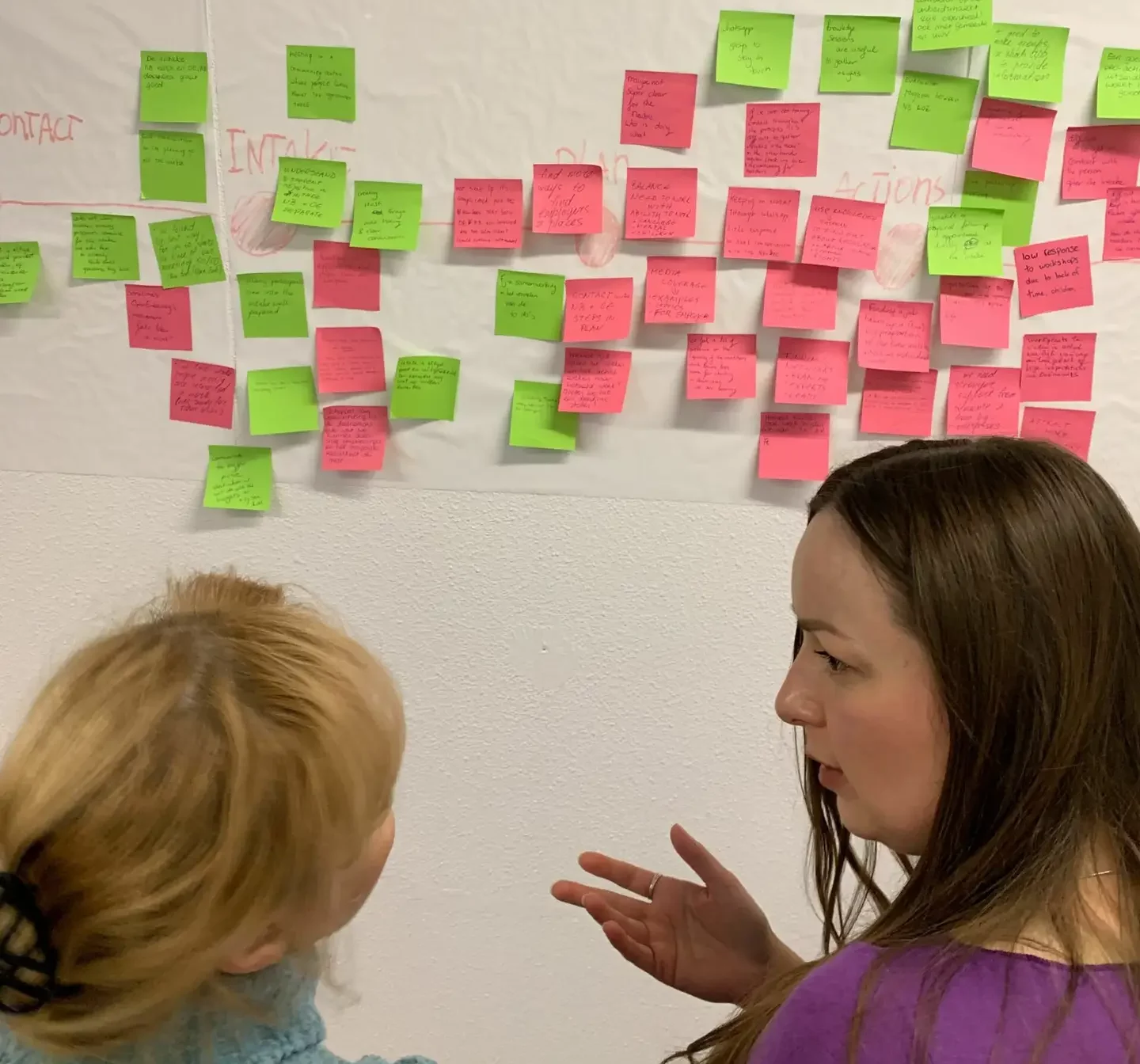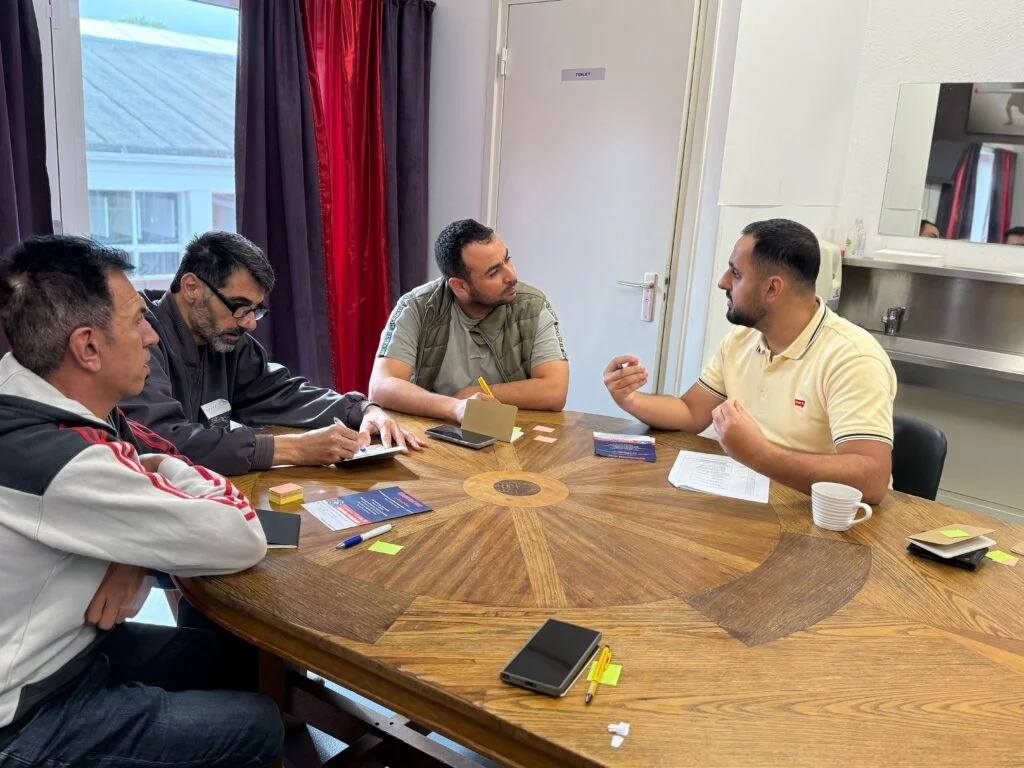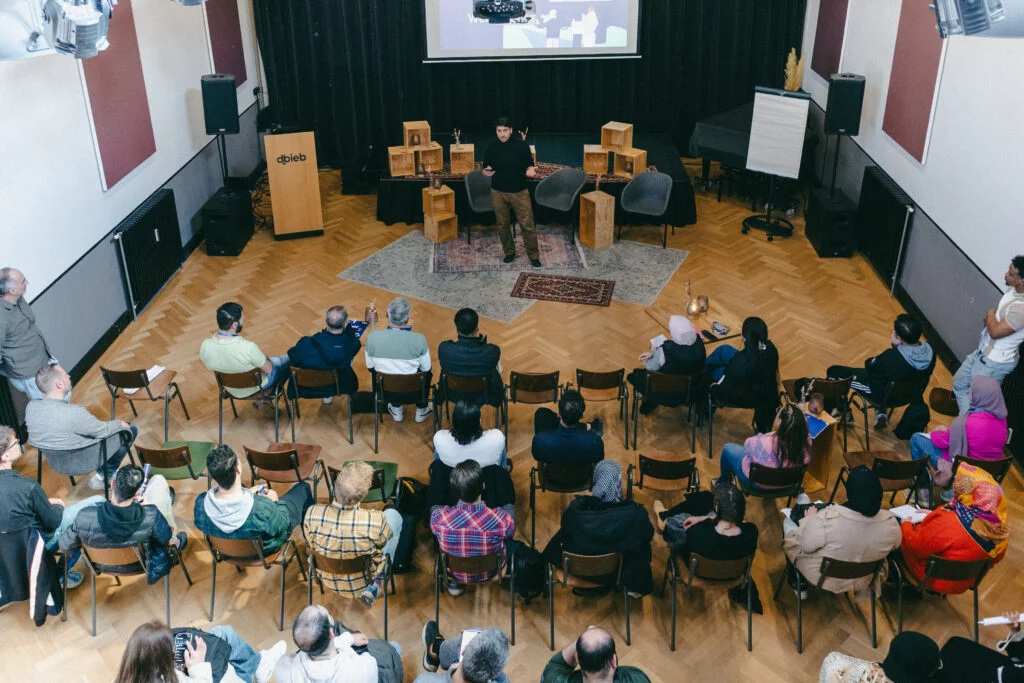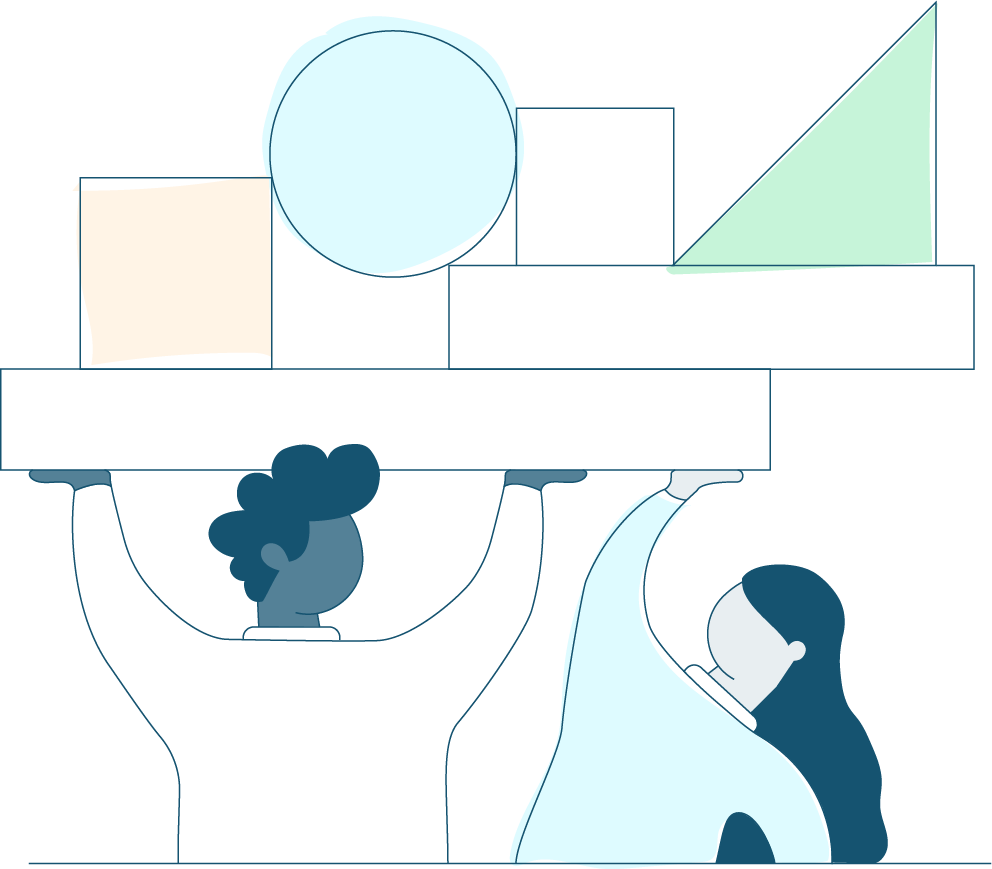Together with Newbees, we conducted a year of action research among Ukrainian newcomers, with a focus on work. We examined how policies for people from Ukraine work out in practice and are experienced. Refugees from Ukraine - unlike people in the regular asylum procedure - can participate more quickly and with more autonomy and freedom in the Netherlands, but at the same time without broad access to the welfare state.
In the study, we also collected in a focus group the experiences of people covered by mainstream asylum and integration policies. In two articles we elaborate on the insights from this focus group, supplementing the earlier report. In this first article, the focus is on "What does it take for a newcomer to take steps into the Dutch labor market?
By: Jolien de Vries
Focus group newcomers to the labor market
The focus group was an interactive meeting around the theme "Getting grip on your career. All participants wanted to take steps in the field of work; and have been forced to migrate at some point in their lives.
The purpose of the workshop was twofold: making a personal plan for work and learning together about what works and what doesn't if you want to work as a newcomer in the Netherlands. The insights from the session are essentially about what it takes to make strides in the field of work. This knowledge is important for the further development of the Dutch integration policy (or a broader drawn integration policy for newcomers).
Four key themes focus group
Four key themes emerged from the focus group for newcomers to the labor market: information provision, development opportunities, informal network and perspective. In this article, we zoom in on the first three themes. For each theme, we list a number of concrete suggestions from participants.
1 Clear, findable information work opportunities
Both newcomers from Ukraine and newcomers from other countries (to whom the asylum policy applies) indicated that limited information provision is an obstacle to making steps toward employment. For people covered by the asylum policy, information from official sources is minimal. This creates a lot of misinformation about working in the Netherlands. People rely on information from the informal network and it is difficult to check whether this information is correct.
For people from Ukraine, much more information (in their own language) is available. But they do not always experience this as accessible. They often describe finding the right information as "accidental"; you just have to be part of the right networks. Moreover, much of the information about the labor market is very broad and not always useful or applicable to someone's personal situation.
Concrete suggestion
- Provide home language information offered by formal organizations
- Through "personal support," generic labor market information can be translated into: how is this relevant to my personal situation?
2 Opportunities for personal development
Being able to keep developing yourself is an important and recurring theme among newcomers to the labor market. Focus group participants especially mention access to (language) education and volunteering as success factors. Language education is seen as a practical tool for achieving personal (career) goals. For some this means access to English language education, for others access to Dutch language education. In addition, volunteering also offers the opportunity to develop new skills. Moreover, most participants see volunteering as a source of new contacts and mental well-being.
"Volunteering helps me get out the door and feel good. But it is important to remain realistic; I put in more time and energy that it yielded. I was hoping for a concrete job opportunity, but that wasn't the case."
Differences in development opportunities
The need for personal development is a shared factor in the group of newcomers. At the same time, we see large differences in the degree of access to development opportunities. For example, many people from Ukraine already have experience with volunteer work, (language) courses and sometimes also with development activities within a paid job. However, many of them encounter that training opportunities are often still limited.
People who fall under the asylum policy experience this differently. For them, these development opportunities are very scarce. And the stories they share are illustrative of the commitment that appears to be needed to make the most of these scarce opportunities. For example, one participant shares:
'I wanted and could work, but couldn't do so without a BSN. According to the rules, I would have to wait a few more months. I then compiled a list of employers who offered me work and submitted it to COA. With this proof, I received a BSN earlier than usual'.
Concrete suggestion
- Match language offerings to people's own needs. Often this is the Dutch or English language. Approach language learning as a means, not an end.
- Organize access to development opportunities, such as volunteering and courses, for all newcomers
An informal network
For newcomers, an informal network proved to be an important factor for better access to the labor market. Participants from Ukraine mentioned that it was nice to have informal contact with people in the neighborhood and/or with people working within the sector in which someone is interested. Participants covered by the asylum policy also named expansion of the informal network as an important source of access to and information about the labor market. However, they experience limited networking opportunities and would like to have more contact with people in the neighborhood.
Contact with people within relevant work sectors can also take place online, for example through LinkedIn. For successful contact via LinkedIn, however, it is important to be aware of the manners within the Dutch context. For example, how to actively use a LinkedIn profile to approach unknown people, instead of seeing it only as an online CV.
Concrete suggestion
- Facilitate opportunities where neighborhood residents who are new and long-time residents can meet on an equal, low-threshold basis.
- Support people in successfully using LinkedIn within the Dutch context.
Differences in success factors
Focus group participants broadly agreed on what it takes for a newcomer to make (further) strides in the Dutch labor market. Three important factors are: 1) clear information in own language and a translation of this information to the personal situation, 2) access to development opportunities such as a language course and volunteer work, and 3) opportunities to get to know more people in the neighborhood and in one's own field of work.
Although the needs of participants are thus very similar, we see large differences between them in the extent to which people are able to realize these needs. The policy that people are covered by is a strong determinant.
People from Ukraine are covered by the Temporary Directive on Protection. Within this policy, people can do paid work or volunteer work relatively easily and there is a lot of information in their own language. They experience particular bottlenecks when it comes to training opportunities and expanding the informal network.
People who have fled from another country are covered by regular asylum and integration policies. It is striking how scarce access to success factors are for them. There is very little information (and even less in their own language) and few language courses accessible to them. Volunteer work is hard to find and few networking opportunities are facilitated.
Conclusion
The applicable policies create the frameworks within which certain groups of newcomers have access to the labor market. There appears to be a big difference between policies for people who have fled from Ukraine and policies for people who have fled from other countries. This provides an opportunity to learn from positive policy aspects so that it can be used more broadly for all newcomers. At the same time, this focus group teaches us that society can also play a role in creating access to the labor market; in the form of volunteering and informal networks.
In addition, we received a lot of positive feedback on the focus group itself. Participants were enthusiastic about the space for mutual information and knowledge exchange about work and making lasting connections. In addition, the focus group was helpful in terms of perspective development. We expand on this fourth core theme in the follow-up article.
Get the follow-up article
Curious about the follow-up article on the focus group newcomers to the labor market? Then subscribe to our updates.





